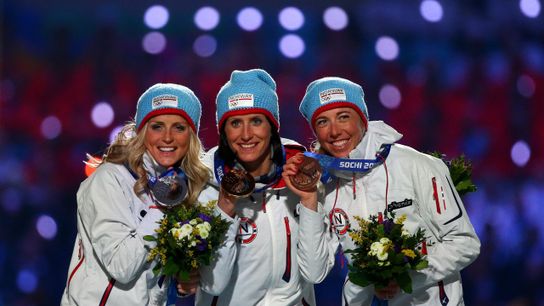If you listen to the right people, they'll tell you our nation's culture is in crisis, and it's because our youth sports aren't competitive enough. Trophy culture sends a dangerous message, one that is turning us into happy losers and leading its participants into financial ruin.
New England Patriot James Harrison was roundly praised for trashing his sons' participation trophies.
Clearly, the problem is we're not competitive enough anymore.
In today's USA Today Dan Wolken has a very interesting piece on the sporting culture in Norway. A nation of 5 million people is beating the US, Canada, Russia and the rest of the planet in the medal count at the Pyeongchang Winter Olympics.
And they're doing it while being some of the least competitive people on earth -- at least when it comes to youth sports. In fact, the Norwegians don't even allow their youth sports to keep score until the kids turn 13.
“A huge amount of Norwegian kids are doing sports, so we have very broad recruiting base, and our top sports programs and our kids are very closely connected in our system,” Tore Ovrebo, the director of Norway's elite Olympic sports programs, told Wolken. “They can compete, but we don’t make like No. 1, No. 2, No. 3 before they’re in their 13th year. We think it’s better to be a child in this way because then they can concentrate on having fun and be with their friends and develop. We think the biggest motivation for the kids to do sports that they do it with their friends and they have fun while they’re doing it and we want to keep that feeling throughout their whole career.”
Viewed through one prism, one can see how the Norwegian approach aligns with Nick Saban's famous Process, where the end result isn't as important as the steps you took to get there.
I'm not saying the Norwegian approach is the best one, or even that it would work here -- heck, even the Norwegians aren't saying that. I know the Norwegian no-score-keeping approach wouldn't have worked on me as a kid, because I kept a running scoreboard in my head for every game I played.
But that's not the point. Maybe we lose something as Americans if we divide kids into Winner and Loser buckets at 7 years old. Perhaps an 8-year-old kid that began a season excited to play had that excitement beaten out of him after a winless season.
We might lose something as a culture by de-emphasizing real-world competitiveness in youth sports, but we might also lose something by over-emphasizing it.
Maybe, just maybe, there's a middle ground in there somewhere.
